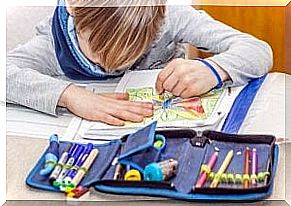Promoting Emotional Intelligence In Children – Being Parents

Emotional intelligence is the ability to correctly recognize, appreciate, and assess our emotions and those of others. It helps to ensure that our actions are in line with the emotions we feel.
What is emotional intelligence?
Much research has inferred that the abilities and skills needed to be successful in life cannot be measured by an intelligence test.
A bright brain and a high IQ don’t help us much if we don’t understand other people’s emotions and are not empathetic.
Most parents are aware that the education of their children is intimately linked to the correct development of their emotions. Indeed, family relationships play a fundamental role in the emotional well-being of the whole family.
Likewise, if not, they are a cause of conflict and discomfort, causing negative emotions that affect the whole family.
A home characterized by peace, calm, harmony and happiness will be a perfect environment to channel the emotions of your children. Parents are role models for their children.
Therefore, parents must first have a clear emotional awareness. That is, being aware of their emotions, their causes and their possible consequences.
How can we help our children to have emotional intelligence?
To help our children deal with their emotions properly, we need to teach them to verbalize their emotions from an early age.
In other words, it is good to teach them to connect with themselves, so that they can better understand what they are feeling and then express it. Any time or situation of the day is suitable for practicing and developing emotional awareness.

In addition, it is also important that they pay attention to their emotions, whether they are positive, for example when they are happy, or negative, when they are feeling sad or angry. They can then label and name them.
We must not forget the importance of looking for the cause of this emotion, of trying to find out what caused it and, most importantly, why it makes him feel what they are feeling. In short, they acquire their own emotional awareness.
In the case of negative emotions, it is good to teach them to look for alternatives to these emotions. That is to say, if something annoyed them, make them see that in the same situation, we can act in several ways.
The decision we make is not always the right one. Emotions are in many cases responsible for our thoughts and actions. Therefore, getting to know and react to them can help us empathize and be more flexible.
Characteristics of parents who have high emotional intelligence
- Possess physical and mental tools for self-control.
- Be based first on facts, rather than prejudices. First impressions are never decisive.
- Having the ability to see the bright side, that is, to turn the negative into the positive.
- Knowing how to take responsibility for their actions and learn from their mistakes.
- Being able to set limits and be firm when necessary.
- They are open to meeting new people.
How to work on the emotional education of your child?
From an early age, our children are exposed to many emotions and feelings that they must learn to perceive positively in order to behave appropriately.
On this depends their probability of having good social relations and active participation in society which will be reflected in personal satisfaction.
So we present to you some of the aspects that you need to work with your child. They will allow you to strengthen the development of emotional intelligence:

Communication
- Find spaces to speak and listen openly and actively.
- Replace closed questions with open questions.
Recognize strengths
- Congratulate them on their successes and efforts.
- Don’t label inappropriate behavior.
- Strengthen affection.
Help her in difficult times
- Convey security and a lot of calm.
Help him manage his emotions
- Help her face the situation and seek a solution together.
- Use all conflicts as tools for your child to learn from them.
Finally, remember that promoting your child’s emotional intelligence will not only help them have good communication and a good relationship at home. It will also help him to function naturally in the future, to make his own decisions and to act on them.









